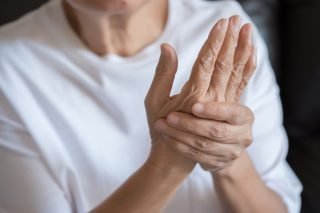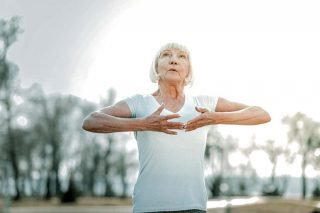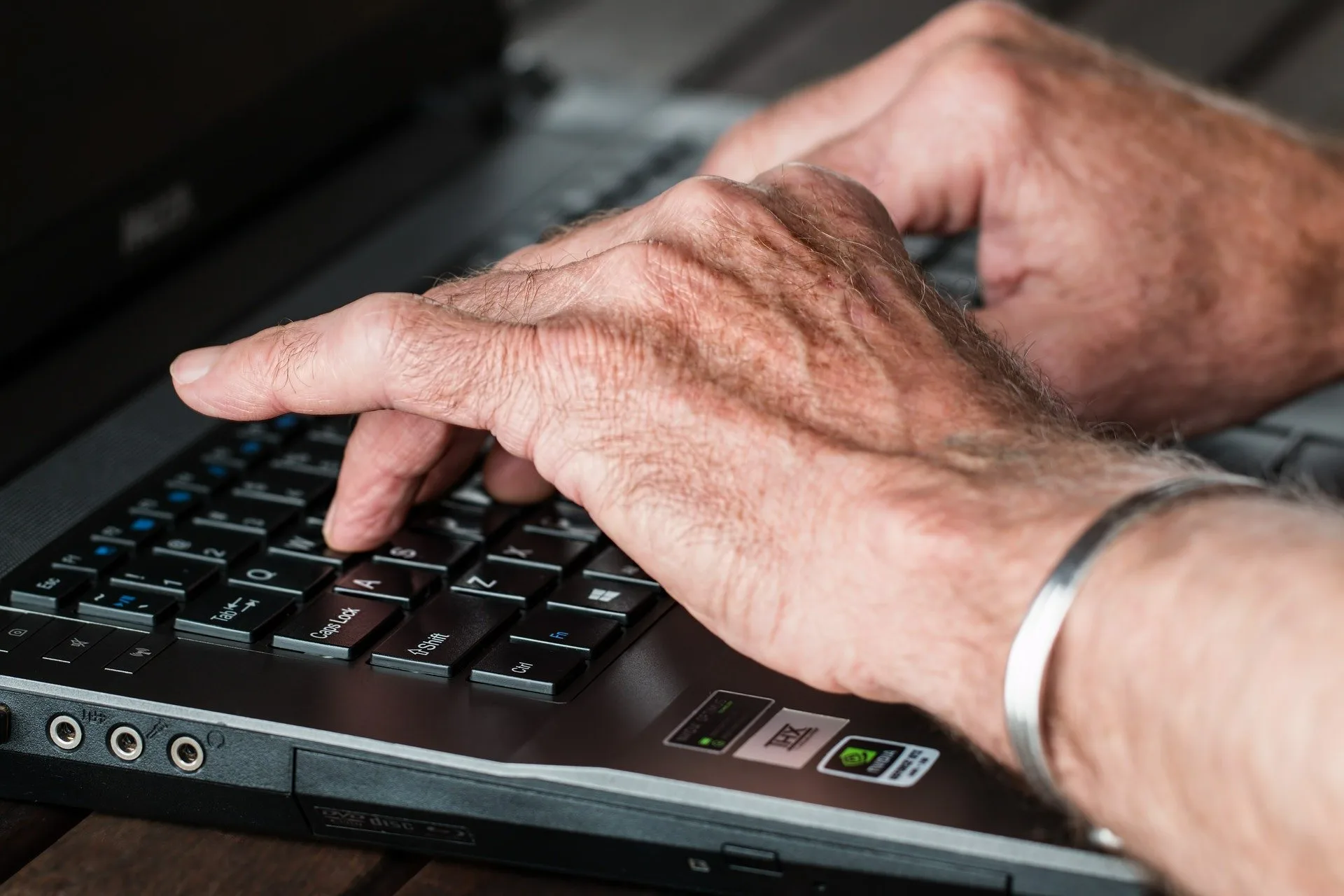Many disorders such as psoriatic arthritis, rheumatoid arthritis, and fibromyalgia can cause pain and distress in the joints. You don’t suffer from joint pain alone. Millions of people in the world are suffering from sore joints, according to the Centers for Disease Control (CDC), and that figure is expected to increase. Researchers have recently estimated that by 2040, the overall number of adults suffering from arthritis in the country is projected to rise by 49 percent to a whopping 78.4 million—many of them have their movement limited by joint pain.
When you have a chronic disease, which causes joint pain, diligent self-care is essential to manage your condition. Here, you can find 17 intelligent ways to relieve your symptoms.
17 Ways To Relieve Chronic Joint Pain and Arthritis
1. Lose Weight
If your body loses a single pound, it will take 3 to 4 pounds of the strain off your knees. Less strain means less pain. Eating a nutritious, balanced diet and exercising daily will help you lose weight, gain strength, and boost your overall health, helping you to feel better. Extra weight can often put a lot of strain on your body and can limit your movements.

one photo/shutterstock
2. See a Physical Therapist
A physical therapist will show you exercises that help to retain flexibility in your joints. These specific workouts enable you to strengthen your leg muscles to better support your knees. Work with a PT to build a customized strategy for you. Make sure you observe the schedule prescribed by your PT.
3. Try OTC Pain Relievers
With over-the-counter medications, you can relieve knee pain. Begin with acetaminophen (Tylenol). Non-steroidal anti-inflammatory medicines, including naproxen and ibuprofen, are other options. Discuss the OTC drugs you are taking with your doctor; they can adjust the dose according to your needs. If you cannot find relief from these, don’t worry. We’ve found this product amazing for joint relief.
4. Control your inflammation
There is a connection between swelling and some conditions (but not all), which can cause articular pain. With rheumatoid arthritis and psoriatic arthritis, “the purpose of care is to control inflammation,” Dr. Askanase says, though she states that in addition to inflammatory therapies, such as non-steroidal anti-inflammatory drugs, other patient treatment approaches are typically applied (NSAIDs). Adherence to a diet rich in non-inflammatory foods can also benefit. That includes omega-3-high fatty acids, oily fish (such as salmon), dark leafy greens, colorful vegetables, low-fat dairy products, vitamins for boosting immunity, and whole grains.
5. Get a good night’s sleep
There is no question about it. Good sleep is essential to your health, and the lack of sleep can increase your risk of depression, obesity, diabetes, etc. However, it is easier said than done for people with chronic joint pain. All the clinics and hospitals advise that you sleep on the right mattress and that you choose a pain relief that will last until the morning to alleviate the discomfort of nighttime. Also, try to invest in a white noise system that can collect and filter out distracting sounds.
6. Consider acupuncture
Dr. Askanase says, “Acupuncture can be a good aid for chronic articulatory pain control”. Researchers analyzed 29 studies involving about 18,000 students in a 2012 study from the Archives of Internal Medicine, which found that acupuncture effectively alleviated symptoms of four chronic conditions: back and neck pain, osteoarthritis, chronic headaches, and shoulder pain.

Koldunov/Shutterstock
Acupuncture is a safe and valuable therapy for you. If you’re interested in acupuncture, find a practitioner with the DABMA (meaning they are licensed by the Board of Medical Acupuncture).
7. Pump some iron
Many arthritis patients stop lifting weights because they are concerned that their joints will be stressed further. In reality, it helps relieve pain in most cases. By strengthening the muscles around the joints, you help remove some load, which reduces discomfort and improves the joints’ health.
8. Sign up for a tai chi class
Gentle extension programs such as yoga and tai chi keep the joints going and help feed the cartilage. The extension also prevents worsening, particularly in the hands. These habits may also contribute to pain perception and stress management.
9. Try Using Topical Medications
You may find some relief from topical medications with active ingredients such as capsaicin, which decrease your nerve cells’ ability to transmit signals of pain, salicylate, and counter-irritant products, such as menthol and camphor, that create warm and cold sensations, in joints that close to the surface of the skin (such as your hands and knees).
10. Stay as active as you can
Although it can be difficult to just get out of bed on days when you have joint pain, experts emphasize that gentle exercise can make a huge difference in reducing symptoms. Low impact sports, such as walking, cycling, and swimming, improve the muscles around the articulations which can benefit people with arthritis.
Exercise allows you to lose pounds and avoid the weight gain that can affect your health dramatically. Excess weight puts additional strain on articulations that can worsen existing symptoms. Researchers also found that a decrease in weight helps reduce inflammation and pain in osteoarthritis patients. Speak to the doctor to ensure that you are well enough to exercise. Also, figure out the forms of training most useful for you.

CGN089/Shutterstock
11. Try to Stay on One Level
The disease can be particularly painful if you have arthritic pain in your knees. Plan your day to reduce the number of times you go up and down. You can even restructure your living space. For people suffering from arthritis and other inflammatory conditions, it is helpful to keep their frequently used objects on one level.
12. Use certain devices to assist your joints
A brace will help to ensure support for your knees. An “unloader” brace will remove weight from the affected region of your knee. The whole knee is supported by a “supporter” brace. Try to see what works best for you. A cane for balance and support and an elastic connecting bandage for more support around the knee itself are additional aids that can help.
13. Seek support
It’s not easy to live with arthritis. You can try to find other people with whom you can chat and exchange ideas. Check out online or in your area for arthritis support groups.
14. Build Support
Do not be afraid to ask your doctor or local hospital about chronic pain support groups. Use the search tool of the Arthritis Foundation for Community services and activities in your region or call a local branch of the American Chronic Pain Association (ACPA). It allows users to find and list groups of support for patients of all ages. If you have psoriatic arthritis, you can check out the National Psoriasis Foundation, home to the world’s largest online psoriasis and psoriatic arthritis support group, TalkPsoriasis.
15. Talk to your doctor about supplements and complementary medicine
Several additional treatments for arthritis have been studied. The most promising are glucosamine and SAMe. Some trials were based on glucosamine, mostly along with chondroitin. Some medical research has shown that the SAMe, a chemical contained in the body, can work.
 A few off-the-shelf medications were also found to be helpful. If you try supplements, you may have to use them for a month or more before the effects are felt. Therapies like acupuncture and massage are also beneficial for people with arthritis. Acupuncture eases knee pain and improves their function. Blood flow and warmth can be increased in sore joints by massaging them. Make sure you find an experienced practicing arthritis medical practitioner.
A few off-the-shelf medications were also found to be helpful. If you try supplements, you may have to use them for a month or more before the effects are felt. Therapies like acupuncture and massage are also beneficial for people with arthritis. Acupuncture eases knee pain and improves their function. Blood flow and warmth can be increased in sore joints by massaging them. Make sure you find an experienced practicing arthritis medical practitioner.
16. Wear Comfortable Footwear
Discuss with your doctor regarding the selection of shoes and insoles that provide help and reduce discomfort. Select simple, flexible shoes. Try not to wear high heels.
17. Stay Positive
Your knee pain can be so agonizing that sometimes it is hard to concentrate on other things. You need to distract yourself to help lower the pain by doing the things you love the most.
There you go! These are all self-care practices for better management of your arthritis symptoms! Do not be afraid to speak to your doctor and discuss the symptoms thoroughly. Make sure to listen to your doctor’s advice and never be afraid to reach out if your pain becomes severe.





![women [longevity live]](https://longevitylive.com/wp-content/uploads/2020/01/photo-of-women-walking-down-the-street-1116984-100x100.jpg)










